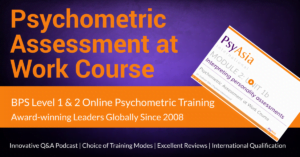May 6, 2021
Introduction
Patients diagnosed with amnestic mild cognitive impairment (aMCI) are at high risk of progressing to dementia. It became possible, through the use of biomarkers, to diagnose those patients with aMCI who have Alzheimer’s disease. However, it is presently unfeasible that all patients undergo biomarker testing. Since neuropsychological testing is required to make a formal diagnosis of aMCI, it would be interesting if it could be used to predict the amyloid status of patients with aMCI.
Methods
Participants with aMCI, known amyloid status (Aβ+ or Aβ−) and a comprehensive neuropsychological evaluation, were selected from the Cognitive Complaints Cohort database for this study. Neuropsychological tests were compared in Aβ+ and Aβ− aMCI patients. A binary logistic regression analysis was conducted to model the probability of being amyloid positive.
Results
Of the 216 aMCI patients studied, 117 were Aβ+ and 99 were Aβ−. Aβ+ aMCI patients performed worse on several memory tests, namely Word Total Recall, Logical Memory Immediate and Delayed Free Recall, and Verbal Paired Associate Learning, as well as on Trail Making Test B, an executive function test. In a binary logistic regression model, only Logical Memory Delayed Free Recall retained significance, so that for each additional score point in this test, the probability of being amyloid positive decreased by 30.6%. The resulting model correctly classified 64.6% of the aMCI cases regarding their amyloid status.
Conclusions
The neuropsychological assessment remains an essential step to diagnose and characterize patients with aMCI; however, neuropsychological tests have limited value to distinguish the aMCI patients who have amyloid pathology from those who might suffer from other clinical conditions.
Go to Source
Author: Luísa Alves,
Sandra Cardoso,
Dina Silva,
Tiago Mendes,
João Marôco,
Joana Nogueira,
Marisa Lima,
Miguel Tábuas‐Pereira,
Inês Baldeiras,
Isabel Santana,
Alexandre Mendonça,
Manuela Guerreiro


